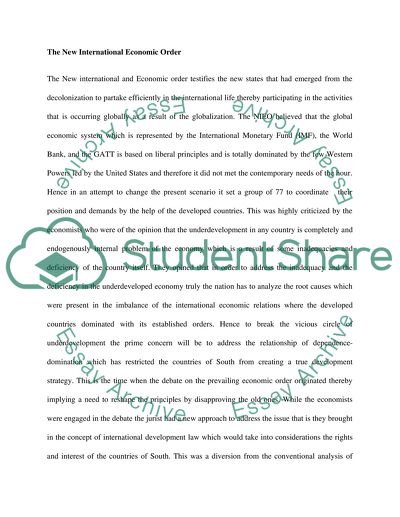Cite this document
(“The New International Economic Order within the United Nations Essay”, n.d.)
Retrieved from https://studentshare.org/environmental-studies/1420545-the-new-international-economic-order-within-the
Retrieved from https://studentshare.org/environmental-studies/1420545-the-new-international-economic-order-within-the
(The New International Economic Order Within the United Nations Essay)
https://studentshare.org/environmental-studies/1420545-the-new-international-economic-order-within-the.
https://studentshare.org/environmental-studies/1420545-the-new-international-economic-order-within-the.
“The New International Economic Order Within the United Nations Essay”, n.d. https://studentshare.org/environmental-studies/1420545-the-new-international-economic-order-within-the.


